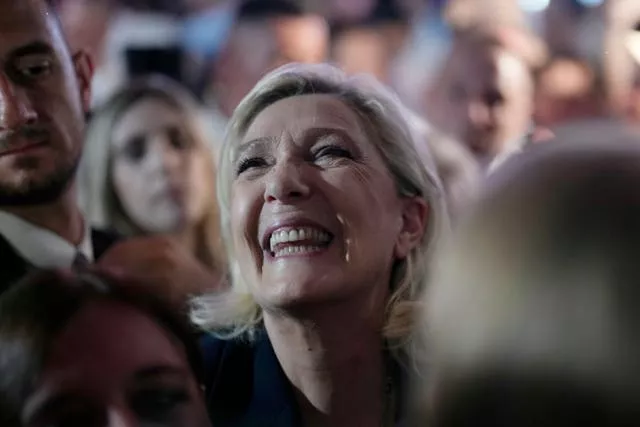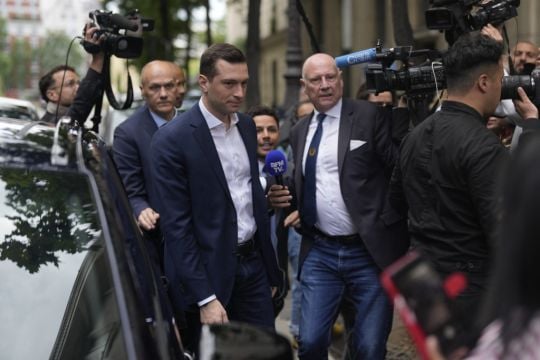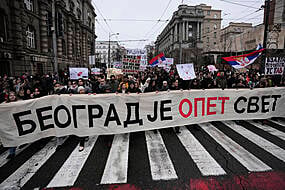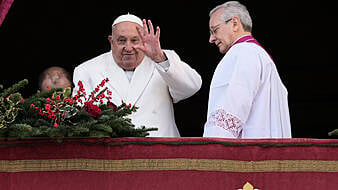The president of France’s National Rally will take the helm of government only if the party wins an absolute majority in Sunday’s second round of legislative elections, the leading far-right figure Marine Le Pen said on Tuesday.
The National Rally, under party president Jordan Bardella, secured the most votes in the first round of the surprise legislative elections on June 30 but not enough to claim overall victory.
“We cannot accept going into government if we cannot act,” Ms Le Pen said in an interview on Tuesday with public broadcaster France Inter.

“It would be the worst betrayal of our voters.”
Round one on Sunday propelled the National Rally closer than ever to government but also left open the possibility that voters could yet block its path to power in the second and final round on July 7th.
Ms Le Pen’s party and its opponents in the left-wing alliance of the New Popular Front as well as French president Emmanuel Macron’s weakened centrists are all seeking to deny the far right an absolute majority by rallying supporters in high-stakes campaigning this week.
The National Rally and its allies could secure a working majority in parliament in the final round on Sunday.
Or they could fall short, stymied at the last hurdle by opponents who still hope to prevent the formation of France’s first far-right government since the Second World War.
Both scenarios are fraught with uncertainty for France and its influence in Europe and beyond.

With the stakes high and the time frame compressed, the election has overshadowed preparations for Paris to host the Olympic Games, which open in less than a month.
To block the far right’s ascent to government, some leftist and centrist candidates who did not win outright in round one but qualified for round two have stepped aside.
Candidates have until 6pm on Tuesday to decide whether to stay in the race or withdraw.
By pulling out, opponents of the National Rally might divert votes to other candidates better positioned to beat the far right on Sunday.
“We have one objective today (and that is) to deny an absolute majority to the National Rally,” said Francois Ruffin of the hard-left France Unbowed party that is part of the New Popular Front alliance along with French greens, Socialists and Communists.
Mr Macron dissolved the National Assembly and called the snap election on June 9, after a stinging defeat at the hands of the National Rally in French voting for the European Parliament.

The deeply unpopular and weakened president gambled that the far right would not repeat that success when the country’s own fate was in the balance.
But Mr Macron’s plan backfired.
He is now accused, even by members of his own camp, of having opened a door for the National Rally by calling voters back to the ballot box, especially when so many are angry over inflation, the cost of living, immigration and at Mr Macron himself.
The far right tapped into voter frustration with inflation and low incomes and a sense that many French families are being left behind by globalisation.
Ms Le Pen’s party campaigned on a platform that promised to raise consumer spending power, slash immigration and take a tougher line on European Union rules.
The National Rally’s opponents fear for civil liberties if the party, which has a history of racism, xenophobia, antisemitism and hostility to France’s Muslims, takes power.
It plans to boost police powers and curtail the rights of French citizens with dual nationality to work in some defence, security and nuclear-industry jobs.
Mr Macron himself warned that the far right could set France on a path to civil war.







